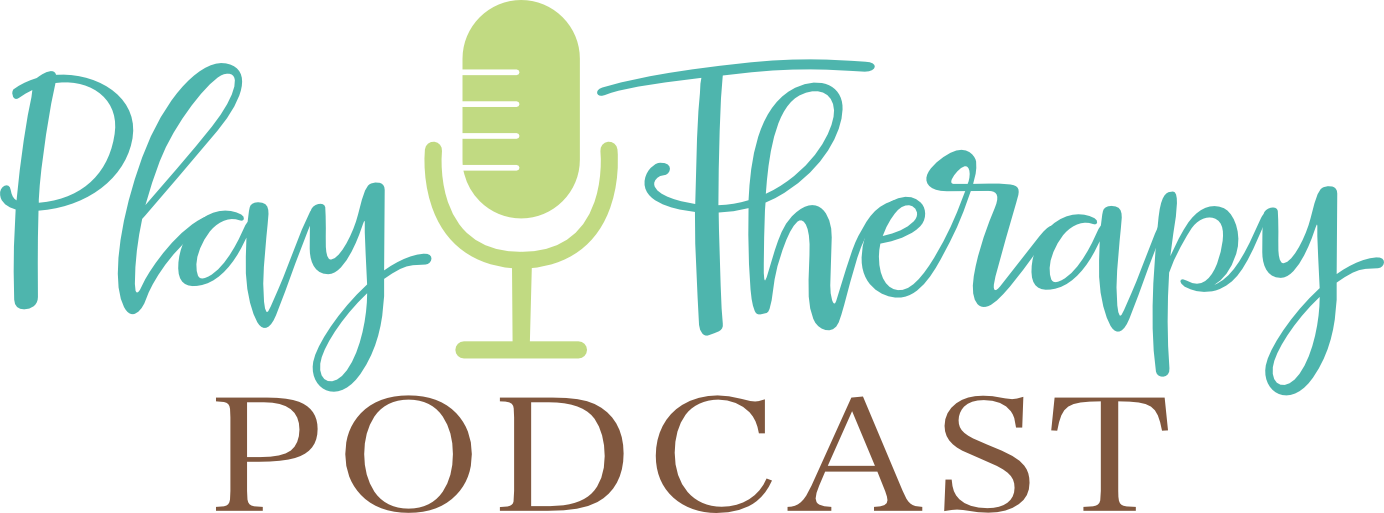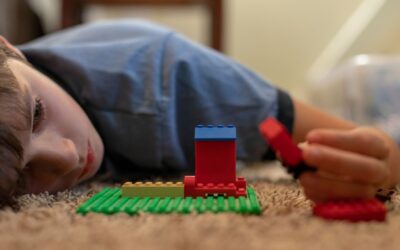In this episode, I respond to a question about a six-year-old client with a history of early instability who has experienced recurring night terrors. I explain why night terrors are not always trauma-based and how frequency, intensity, and impact on daily functioning...
Questions & Answers
365 | Just Because They’re Older Doesn’t Mean We Change the Model
In this episode, I answer a question about working with tweens and teens—particularly neurodivergent clients—and whether it’s ever appropriate to “check in” verbally about things like school. I explain why, even with older children and adolescents, directly asking...
363 | Reducing Attrition by Preparing Parents for Resistance
In this episode, I respond to Elliott’s question about children who strongly resist play therapy from the very beginning and parents who eventually give up and terminate early. I explain why early resistance is not a red flag for CCPT failure, but often a clear...
359 | Mobile Play Therapy Challenges: Keeping Kids in the Play Space
In this episode, I answer Andrea’s question about providing CCPT in a client’s home and navigating the challenges that arise when the play space isn’t a traditional playroom. In mobile or in-home CCPT, the environment itself can make limit-setting and structure...
357 | No Parents Allowed! – The Ripple Effect of a Parent Entering Session
In this episode, I respond to Dovi’s question about an older child whose session became dysregulated when his dad joined the playroom. I explain why parent presence fundamentally disrupts the CCPT process, breaks the therapeutic dyad, and immediately alters safety,...
355 | Costumes, Playroom Essentials, and First-Person vs. Third-Person
In this episode, I answer two great listener questions from Mikaela in Illinois. First, we dive into costumes in the playroom—what’s essential, how to think creatively with limited space, and how to make costume play meaningful for kids without overloading your...
353 | Selective Mutism and CCPT: Trusting the Process
In this episode, I respond to Erin’s question about working with a selectively mute child. I explain that selective mutism isn’t a separate diagnosis—it’s rooted in paralyzing anxiety. Once we understand that, we can approach it with CCPT through safety, trust, and...
352 | Power, Control, and Anxiety: Unpacking the Child’s Need for Dominance
In this episode, I respond to Heather’s question about a client who returned to therapy after a higher level of care. This child’s play is dominated by themes of money, power, and control — and I explain how these themes often reflect underlying anxiety and a need to...
350 | Two Common Challenges: Self-Esteem Work and Separation Anxiety
In this episode, I respond to two questions from Megan in D.C.—one about navigating self-esteem work and another about handling separation anxiety in school settings. I explain how to respond when a child asks for praise or directs you to say something specific, such...
348 | When Families Stop Coming: Understanding Attrition in CCPT
In this episode, I respond to Sally’s question about attendance and attrition in Child-Centered Play Therapy. Many therapists are noticing families stop coming around the fifth or sixth session, and I explain why this usually reflects a breakdown in articulation. When...
346 | What to Do When the Child Dictates the Session and Controls the Dialogue
In this episode, I respond to a question from Lungile, a clinician in South Africa working with a 9-year-old girl who engages in highly directive role play—assigning roles, limiting dialogue, and scripting the session. When sessions become this structured, how do we...
345 | When a Child Won’t Go Back to the Playroom: Navigating the “Lobby” Session with the Child and Parents
In this episode, I walk you through one of the most challenging—but entirely normal—scenarios in child-centered play therapy: when a child refuses to go back to the playroom. Whether it's the lobby, hallway, or even the car, I share how we can handle these moments...
344 | Neutral Truth, Big Impact: Communicating with Children and Advocating for Them
In this episode, I answer two questions from Chloe in Georgia. First, I talk about how to navigate physical limitations or health issues—like pregnancy, illness, or injury—in the playroom without disrupting the child’s experience or compromising the therapeutic...
342 | Answer or Redirect? Preserving Connection Without Shifting the Focus
In this Q&A episode, I answer three questions from Emily. First, I share how I guide parents to respond when a child—or their sibling—asks why they’re going to therapy. I offer simple, CCPT-aligned language that keeps the explanation safe, supportive, and...
340 | “I Hate This and I Hate You”: Trust the Process When Kids Push Back in Play Therapy
In this episode, I respond to a powerful and relatable question from Liba in Pennsylvania about working with a highly anxious, intensely resistant 8-year-old diagnosed with ADHD. Liba shares details about his anger, avoidance, control-seeking behavior, and outright...
338 | What Parents Really Need to Hear: How to Structure and Deliver Powerful Parent Consultations
In this episode, I answer a question from Juliet in Georgia about how to communicate effectively with parents during the initial parent consultation and ongoing 5-week consults. I break down what to share (and what not to), how to avoid clinical jargon, and why...
336 | When a Child “Breaks” Limits: Staying True to the CCPT Model
In this episode, I respond to a question from Jordan in New York about handling repeated limit “testing” in the playroom—especially in the context of children navigating divorce. I walk through the essential components of CCPT-aligned limit setting, clarify what...
334 | Preparing Parents for What’s Coming: Set Expectations Early or Struggle Later
In this episode, I answer two important questions from McKenzie in Illinois—both centered around session frequency and resistance during therapy. I explain why weekly sessions are ideal in child-centered play therapy and how communicating that clearly from the very...
332 | The Screen-Free Playroom: Holding the Line in a Digital World
In this episode, I respond to a question from Kaylia in Arkansas about how to handle children who want to look something up on a phone during a play session. As screens become more prevalent in kids’ lives, this issue is surfacing more frequently in the playroom. I...
330 | From Over-Attachment to Avoidance: Making Sense of Child Responses in CCPT
In this episode, I respond to a listener question that highlights two very different—but equally important—play therapy dynamics. One child clings to the therapist immediately, handcuffing herself to me in the first session and refusing to leave in the second. Another...
328 | When They Want It Left Just the Way It Was – Permanence Response in CCPT
In this episode, I respond to a listener question about how to handle situations where children want their creations or work in the playroom to remain untouched between sessions. Whether it’s a LEGO build, a coloring page, or a carefully constructed scene, children...





















